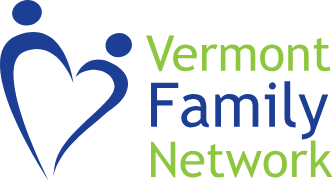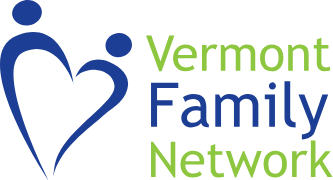Printable Version of Employment and Other Options with Resources
Work-based Learning Experiences
Many youth in high school participate in work-based learning experiences. These are activities that involve actual work experience or that connect classroom learning to employment and careers. These experiences can lead to employment. Some types of work-based learning are:
- Apprenticeship
- Cooperative Work Experience
- Internship
- Job Shadowing
- Paid Work Experience
- Service Learning
Employment
Getting a job is a rite of passage for most youth. The goal is to find competitive employment that is meaningful and satisfying. Planning for future employment should begin well in advance of looking for a job. Participating in work-based learning experiences and having employment opportunities while in high school promote successful employment outcomes in the future. For youth on an Individual Education Program IEP there should be a goal related to employment in the transition plan. Families are important in assisting youth and play a significant role. They can set early expectations at home, prepare youth for the world of work by helping them learn to take direction, to work with others, to respect their commitment to the job and to be flexible. Families can also help youth with career development and with soft job skills such as:
- Personal hygiene
- Punctuality and timeliness
- Understanding responsibilities
- Basic social skills
- Appropriate workplace behavior
Employment for people with disabilities is important on many levels, including:
- Being in the community and helping to combat isolation, loneliness and depression
- Providing a place to interact with others and make friends
- Earning income
- Providing a place to learn social skills and responsibility
- Giving a sense of purpose, accomplishment and structure to the day
- Encouraging more independence
High school students with disabilities have a team of people who help them prepare for the future and move towards future employment. There are families, teachers, mentors, and transition counselors from HireAbility Vermont (formally known as Vocational Rehabilitation) and other adult service providers such as Developmental Services and Mental Health.
The Workforce Investment Opportunity Act (WIOA) is a law that passed in 2014. There is a requirement for Vocational Rehabilitation to work with schools to provide preemployment transition services (PETS) with youth who are still students in high school. High school students with a disability who are receiving special education services or are eligible under Section 504, who have not yet graduated, and are under the age of 22 are be eligible for VR services.
PETS (Pre-Employment Transition Services) provide youth with:
- Job exploration counseling
- Work-based learning experiences
- Counseling on opportunities for post-secondary training or education
- Workplace readiness training to develop social skills and independent living
- Instruction in self-advocacy
Participation in volunteer activities (using resources such as VolunteerMatch) can also promote increased engagement in employment, improved job skill sets, and a successful transition from school to work. Families and school teams can assist youth in identifying volunteer opportunities in their area of interest while in high school.
Employment Options
- Local Job Centers provide job training, education, and employment services
- Vermont Department of Labor (DOL)assists employers with job creation, retention and recruitment and assists people in finding employment.
- HireAbility Vermont offers free, flexible services to any Vermonter or employer dealing with a disability that affects employment. VR partners with human service providers and employers across Vermont to help people with disabilities realize their full potential.
- Vermont Supported Employment Program provides a full range of services that enable people with disabilities (who are eligible for developmental services) to access and succeed in competitive employment. The program goal is to provide full access to employment through the provision of individual support services for people with developmental disabilities.
Entrepreneurship
Entrepreneurship is the process of finding and evaluating opportunities and risks, and developing and executing plans for translating those opportunities into financial self sufficiency. Participating in entrepreneurial education and training programs can help youth prepare for transition to adulthood and explore self-employment options as a means to become self-sufficient. Many youth with disabilities use entrepreneurship as a means to attaining independence and self-sufficiency.
Employment Programs in Vermont for Students with an Intellectual Disability and/or Autism:
- Families First is a Specialized Service Agency (SSA) in Windham County that provides a variety of supports to individuals with disabilities including employment supports.
- Champlain Community Services (also an SSA) provides a variety of supports to individuals with disabilities support in Chittenden, Franklin, and Grand Isle Counties
- Way2Work Program (a program at Champlain Community Services) assists people with developmental disabilities find paid employment that is meaningful to them, valuable to their employer, and inclusive in the community in Chittenden County.
- Project Hire (Howard Center) provides career development and employment support and assistance to individuals with intellectual disabilities within Chittenden County. Project SEARCH is an immersion high school transition program that takes place for one year in a workplace. It is a collaborative program between the Department of Disabilities, Aging, and Independent Living (DAIL), VT Agency of Education (AOE), a Designated Agency and a local school district. Currently there are three sites in VT ( Lincoln Street, Rutland Mental Health, and Howard Center)
- School2Work (Champlain Community Services) is a unique and collaborative career development initiative that prepares Chittenden County high school students with intellectual and developmental disabilities for successful transitions to – and employment in – the competitive workplace.
- Transition II provides opportunities for individuals with disabilities residing in Chittenden County to secure and maintain employment.
- For information on programs in your area, contact your local Designated Agency.
Social Security Programs
- Ticket to Work Program is a program funded by the Social Security Administration for people with disabilities who want to work and provides choices for people looking for
employment, vocational rehabilitation, and other support services. - Social Security (SS) benefits are retirement benefits paid to people who are aged 62 or older, are blind, or have a disability. You must work long enough and pay taxes into the SSA system to be eligible.
- Supplemental Security Income (SSI) is a program of the Social Security Administration. SSI provides monthly benefits to individuals with disabilities who have limited income and resources and can be a support for transition-aged students.
- Social Security Disability Insurance (SSDI) benefits are paid to a worker who has worked and paid into SSA but can no longer work because of a disability.
- Medicaid is a federal-state health insurance program for low-income people.
- Plan for Achieving Self-Support (PASS) is a program to help a person with a disability set aside money in a separate bank account for a specific work goal and for a certain amount of time; PASS is a benefit used to help a person become self-supporting.
Benefits Counseling Program
Work Incentive Counseling is a HireAbility Vermont program that assists Vermonters who are receiving Social Security Benefits (SSI or SSDI). If you are interested in returning to work but you are concerned about what will happen to your benefits and health care if you do work, HireAbility Certified Work Incentive Counselors (CWICs) can help. In most cases, people on Social Security Disability benefits are financially better off if they work – as long as they understand the work incentives.
Resources
Career Planning
- Career Planning Begins with Assessment: A Guide for Professionals Serving Youth with Educational and Career Development Challenges (NCWD)
- Career Exploration in Action
- Engaging Youth in Work Experiences Helping Youth Build Work Skills for Job Success: Tips for Parents and Families
- Understanding the New Vision for Career Development: The Role of the Family (NCWD)
- National Career Development Association
- Occupational Network
Career Readiness
- Introduction to and Help with Resume Writing
- Helping Youth Develop Soft Skills for Job Success: Tips for Parents and Families
- Soft Skills to Pay the Bills
- O*NET OnLine
- Career One Stop
- ACT World of Work
Employment
- Applying for a Job: The Young Adult’s Guide
- CareerOneStop
- Charting the Course: Supporting the Career Development of Youth with Learning Disabilities
- Creating a Path to Employment: Tips for Parents with Children with Disabilities
- Do I Tell My Boss: Disclosing My Mental Health Condition at Work
- How to Keep a Job: A Young Adults Guide
- Job Accommodation Network (JAN)
- The ADA, The Rehabilitation Act, and The Job Interview (PACER)
- The Transition to Employment: What Parents Can Do Now (PACER)
- Understanding the New Vision for Career Development: The Role of the Family (NCWD)
- Inclusive Internship Programs: A Guide for Employers (ODEP)
- Vermont Job Link
- Apprenticeship Workshop Training Modules (NCWD)
- Association of Community Rehabilitation Educators (ACRE) Certification
- Certified Employment Support Professional (APSE)
Entrepreneurship
- Road to Self-Sufficiency: A Guide to Entrepreneurship for Youth with Disabilities (NCWD)
- Entrepreneurs with Disabilities Network
- Global Network for Entrepreneurs with Disabilities (GNED)
Products
- Transition Trek Game (PACER) a board game that helps youth and young adults plan for life after high school. Players draw cards with questions related to careers, independent living, and self-determination.
- Top Secret Job Skills: Declassified is an animated, interactive CD for transition age teens, with and without disabilities, to learn the interpersonal skills that are needed to be successful in the interview and on the job.
Fact Sheets
- Building a Resume: Tips for Youth with Disabilities Tips for young people with disabilities and their families on effective strategies for building the first resume (PACER)
- The Transition to Employment: What Parents Can Do Now (PACER)
- Talk to Your Child About Employment: A Checklist for Parents (PACER)
Training Modules on Employment
Video Series
- How to Make SSI Work for You (PACER)
- From Disability Benefits to Benefits Counseling: Michele’s Ticket to Work Success Story (PACER)
- Skills to Pay the Bills (PACER) “Soft Skills to Pay the Bills: Mastering Soft Skills for Workplace Success” is a curriculum focused on teaching soft or workforce readiness skills to youth, including youth with disabilities.
- Skills to Pay the Bills: Synopsis
- Communication
- Enthusiasm and Attitude
- Professionalism
- Critical Thinking and Problem Solving
“Work Early, Work Often” is a three-part video campaign highlighting the importance of work and work-based experiences in an individual’s transition to adulthood. Each storyline focuses on a different subject and narrative, told from the perspective of key audiences that are part of the transition journey.
Webinars
- The New Face of Vocational Rehabilitation: HireAbility VT ( Vermont Family Network)
- Helping Families and Students Understand their Benefits and Earnings Potential when on SSI (Vermont Family Network)
- SSI, SSDI and Medicaid: Helping Your Child/Youth Get and Keep Disability-Based Benefits (Vermont Family Network)

